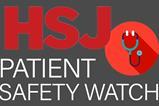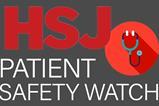HSJ is now hosting the Patient Safety Watch newsletter, written by Patient Safety Watch chief executive James Titcombe.
Good afternoon and welcome to this fortnight’s Patient Safety Watch newsletter.
Tragic inquests again shine light on maternity safety
This week saw the conclusion of two tragic maternity inquests.
As reported by the BBC, the inquest into the death of baby Zachary Taylor-Smith – who died in November 2022 following what his parents called “appalling treatment” at the Royal Derby Hospital – concluded on Tuesday.
Coroner Susan Evans ruled there were multiple “missed opportunities” to refer Zachary to a neonatal team and, on the balance of probabilities, this would have prevented his death. She added there had been “total and complete failures” regarding basic care provision, and “gross failings” regarding fundamental requirements of patient care.
In a statement after the hearing, Zac’s parents Tim and Hannah said their son “was not a learning opportunity, nor should he have been a sacrifice made for the greater good… We think that there needs to be a full review of this country’s maternity services. This is not just happening in one trust or in ‘dark corners’ of the NHS.”
Meanwhile, the inquest into the death of baby Orlando Davis – who died aged 14 days in September 2021 after being born via emergency caesarean section at University Hospitals Sussex Foundation Trust’s Worthing Hospital – also concluded this week.
As reported by ITV news, the inquest concluded Orlando’s mother, Robyn Davies, developed hyponatremia – a condition involving low levels of sodium in the blood – while in labour during a home birth. This went “completely unrecognised… and therefore she did not receive the care and attention that she and… Orlando, clinically required”. This led to Robyn suffering several seizures “which led to a restriction of oxygen to Orlando before birth and this resulted in him suffering an irreversible brain injury”.
In her concluding remarks, coroner Penelope Schofield said she believed the lack of guidance on managing hyponatraemia in pregnancy and labour contributed to Orlando’s death.
She added: “While the trust have given evidence learned from Orlando’s death, the risk of hyponatraemia does not seem to form part of training, there still remains an ignorance nationally among professionals.
“Orlando’s death is one death too many.”
Maternity charities raise concerns with health secretary
In related news, the Sands and Tommy’s Joint Policy Unit has written to health secretary Victoria Atkins to raise concerns about her comments on maternity services’ safety during the BBC’s Sunday with Laura Kuenssberg programme on 10 March. On the show, she conceded there were some “darker corners.. on which we must shine a light” but went on to argue the situation, on the whole, was improving, pointing to data on stillbirths and neonatal deaths in particular.
Jess Reeves, Sands’ head of public affairs and campaigns, said: “Sadly, there are complex and systemic problems in maternity services in England that cost the lives of too many babies. These problems are well known, as the findings from countless reports and inquiries have shown us.
“That the Secretary of State suggested these issues only exist ‘in some darker corners’ of the NHS is puzzling and worrying. That’s why Sands and Tommy’s have written to Victoria Atkins to urge her department to recognise the need for a more comprehensive national approach to improvement.”
My views? Every time we read about tragic maternity failures (sadly all too often), condolences are offered and promises to learn are made – but this simply isn’t enough. As Zac’s parents and the Sands and Tommy’s Policy unit have said, this is not about isolated problems in “dark corners” of the NHS – the stories we read about have repeated themes that evidence ongoing systemic problems across the whole system.
Sands and Tommy’s have called for a “more comprehensive national approach to improvement”. In the conversations and discussions I regularly have with maternity professionals, parents, campaigners and healthcare leaders about maternity safety, the overwhelming consensus is that a new approach is needed.
The time for the government to listen and act is surely now.
In other news this edition…
Watchdog warns exhausted staff posing risk to cancer care
The Parliamentary and Health Service Ombudsman has warned cancer patients could be at risk because healthcare staff are overstretched and exhausted.
The PHSO made the warning after carrying out a deep dive into the 1,019 cancer cases his office investigated between April 2020 and December 2023. Common issues identified included treatment delays, misdiagnosis, and pain management.
PHSO Rob Behrens said: “Everyone deserves safe and effective care. But patient safety will always be at risk in environments that are understaffed and where staff are exhausted and under unsustainable pressure.”
Coroners raised concerns about NHS pressures more than 100 times last year
A BBC News investigation has found coroners in England and Wales issued 109 prevention of future deaths reports last year which listed long waits for care, staff shortages or lack of resources in the NHS as a concern.
Among the deaths it found was that of 10-year-old William Gray, whose family had been fighting for him to receive care for his asthma before his death. William died in May 2021 following a severe asthma attack.
Government announces £35m funding to improve maternity safety
Jeremy Hunt announced in this year’s Budget speech that the government will spend £35m over the next three years on measures aimed at improving maternity safety.
The money will go towards recruiting midwives and making sure staff receive specialist training, including £9m to be spent on rolling out a programme designed to help prevent brain injuries.
Health and social care secretary Victoria Atkins said: “I want every mother to feel safe when giving birth to their baby.
“Improving maternity care is a key cornerstone of our women’s health strategy and with this investment we are delivering on that priority.”
Investment in maternity safety is welcome, but when a single case of avoidable harm in maternity services can result in a £37m settlement, £35m over three years feels like a very small investment.
Private hospital fined £650k over care failings
Priory Healthcare Limited has been fined £650,000 after pleading guilty to failings in its care of Matthew Caseby, who died after absconding from its Woodbourne Priory Hospital in Birmingham.
The Care Quality Commission – which brought the case – said the Priory had failed to provide safe care, particularly regarding the security of its courtyard fences in light of previous incidents when they had been scaled.
Craig Howarth, CQC deputy director of operations for the Midlands, said: “Matthew had the right to expect to be kept safe from harm while living at Woodbourne Priory Hospital. But in this case, the provider failed in its legal duty to protect him from being exposed to significant harm.”
The Priory was also ordered to pay costs of £43,672 and a £180 victim surcharge.
‘Very high-risk’ women missed out on cancer screening
It emerged earlier this month that just over 1,000 women who have previously received radiotherapy for Hodgkin lymphoma and so were at “very high risk” of developing breast cancer and eligible for annual MRI checks may not have been referred for them.
In a Parliamentary statement, the Department of Health and Social Care said NHS England was first alerted to the issue in late 2023 and, after checking patient records, identified and wrote to the 1,487 women who were not on the “very high-risk pathway” for breast screening and should have been. NHSE also told breast screening services it expected them to offer the women it was contacting a follow-up appointment within three months.
MPs call for reform of watchdog
The Public Administration and Constitutional Affairs Committee has published a report calling for reform of the PHSO, raising concerns in particular that the PHSO had missed its own performance targets for handling cases.
The same committee also called on the government to prioritise reform of the PHSO in 2022, but the government declined to lay any such legislation.
PACAC chair William Wragg said: “While we do make some positive commendations of the PHSO, such as the increased numbers of cases resolved by mediation, improved staffing levels and further progress on reducing the covid backlog, our report makes clear that there remains work to be done by the organisation to address criticisms of its handling of casework and to evaluate and address staff turnover issues.”
In a statement, PHSO said it was “pleased to see the committee’s support for reform of our outdated legislative framework… We agree with their sentiment that reform has been ‘neglected’, is ‘long overdue’, and that ‘further delay is no longer tenable’.”
Sharing some good stuff…
Nottingham University Hospitals Trust has produced a leaflet for pregnant people who have experienced vaginal bleeding in later pregnancy. The leaflet aims to give women and families more information about possible causes of bleeding and recommendations that might be made for changes in pregnancy care.
The leaflet has been produced in partnership with the parents of baby Quinn Parker, who tragically died in July 2021 after suffering oxygen starvation in the womb. As reported by BBC News, a 2022 inquest found, despite incidences of bleeding and severe pain, Quinn’s parents were not included in treatment discussions nor given information on what to look out for. The coroner concluded it was a “possibility” Quinn may have survived with earlier intervention.
Quinn’s parents Ryan and Emmie told me: “There is nothing that can bring back Quinn, but the values of being listened to, respected and willing to learn should never be underestimated by healthcare providers. Parent-led care improvements can have a restorative power. In this instance, although very overdue, the implementation will save lives, and this also provides invaluable meaning to Quinn’s short life.”
Summary of the National Safety Standards of Invasive Procedures
The Centre for Perioperative Care has launched a helpful two-page summary of the National Safety Standards of Invasive Procedures. The summary – available here – is educational and informative for anyone who does interventional procedures and the teams that support them.
PSIRF in Practice
The final share for this edition is to highlight the fabulous work being done by Annie Hunningher (consultant in anaesthesia and patient safety lead) and colleagues at Barts Health Trust – as featured this week on social media!
Annie and colleagues have developed a PSIRF in Practice half-day training course that aims to demystify Patient Safety Incident Response Framework concepts with education in safety science and human factors, and share local safety data and procedures with teams followed by role plays of SWARM debriefs and after action reviews with different scenarios.
Annie told me: “PSIRF aims to help everybody be able to think about the system and solutions and move away from root cause analysis and blame. NHSE has described the training needs and requirements for trusts to meet PSIRF… but training hasn’t yet reached the frontline staff and the linked education, improvement and governance teams.”
This course looks like a great way to close the gap. Those interested in finding out more about this work (as well as the other great patient safety work Annie is involved in) can follow Annie on X!
That’s all for this edition. Please look out for our next newsletter in three weeks. In the meantime, thanks for reading and stay safe.
James Titcombe































No comments yet